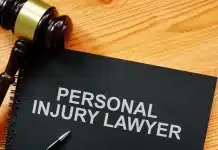In a personal injury lawsuit, the stakes can be incredibly high. Navigating the legal system can be daunting, and many individuals make common mistakes that compromise their claims. Here are potential pitfalls you need to avoid.
Failing to Seek Immediate Medical Attention
One of the most critical early steps following an accident is seeking immediate medical attention. Every year, there are about 39.5 million personal injury cases in the United States that necessitate medical treatment. Failure to promptly document injuries medically can weaken your claim and suggests to the court that your injuries may not be as severe as you allege.
Delaying medical care can also complicate the connection between the accident and your injuries in the eyes of law. For a claim to be successful, a clear and direct link must be established between the incident and the injuries sustained. By seeking immediate medical treatment, you provide vital documentation that supports this connection.
Furthermore, your health should always be your top priority. Beyond the implications for your legal case, untreated injuries can worsen, possibly resulting in long-term issues that could have been mitigated with immediate treatment. Your attorney and future medical professionals will likely rely on these records to further substantiate your claims.
Inaccurate or Incomplete Documentation
Documentation is the backbone of any personal injury lawsuit. Accurate and thorough records bolster your credibility and the veracity of your claims. Incomplete or incorrect documentation can cast doubt on your case and complicate the legal process.
From medical records and bills to incident reports and correspondence, every piece of data supports your narrative. Ensure all records are dated, detailed, and relevant to the incident in question. Documenting your injuries, treatment pathways, and the impact on your daily life provides comprehensive insights into your ordeal.
Facilitating this process by maintaining organized, methodical documentation can make a substantial difference in a lawsuit’s outcome. Share all relevant documents with your attorney so they can build a strong case on your behalf. Clarity and honesty in presenting a complete picture deter attempts from opposing parties to discredit your position.
Not Hiring a Qualified Attorney
Choosing not to hire a qualified personal injury attorney can severely impair your chances of a successful lawsuit outcome. Lawyers specializing in personal injury law bring invaluable expertise and negotiation skills to your case. They can navigate the complexities of legal proceedings and insurance negotiations with precision and authority.
An experienced attorney understands the nuances of personal injury cases, including how to counteract tactics used by insurance companies to devalue claims. They will know how to gather and present evidence effectively, increasing the likelihood of securing a fair settlement. Without their guidance, claimants may accept an undervalued settlement or fail to recognize the full scope of their entitled compensation.
Moreover, a seasoned attorney can offer emotional support during a stressful time and ensure your rights are protected throughout the process. Legal representation reflects a commitment to pursuing justice and seeking rightful compensation for losses sustained. Investing in a qualified attorney is often pivotal to the successful navigation of the complex realm of personal injury law.
Misunderstanding Communication With Legal Teams
Clear communication with your legal team is paramount in understanding your case and the steps involved. Misunderstandings or miscommunications can result in missed deadlines or incomplete information, negatively impacting your lawsuit. It is vital to maintain an open and honest line of communication with your attorney.
A skilled lawyer will provide regular updates and explain legal terminologies in an accessible manner, ensuring you remain informed and engaged. Your involvement and understanding of the process enable more cohesive teamwork where both client and attorney can work toward a favorable outcome. It is crucial to clarify doubts immediately to avoid any unexpected issues later.
By fostering a transparent relationship with your legal team, you equip yourself with the information needed to make informed decisions. Remember, your lawyer is there to guide you and demystify the legal process, empowering you to take an active role in your personal injury lawsuit. Effective communication lays the groundwork for collaboration and success.
Premature Settlement Acceptance
The temptation to accept a quick settlement offer can be strong when faced with mounting medical bills and uncertainty. However, premature acceptance may lead to receiving less compensation than you’re truly entitled to. Personal injury protection coverage can provide up to $15,000 for medical bills, but it is crucial to assess all damages before settling.
Your attorney can evaluate the offer to ensure it covers not only immediate costs but also future expenses related to injuries. They bring an understanding of personal injury law and experience in accurately valuing claims, ensuring you are duly compensated for all losses. Avoid settling until all your medical treatments are complete, and the full extent of your damages can be assessed.
Accepting a settlement too early could mean forgoing additional compensation for future medical care, lost wages, or pain and suffering. Your lawyer will provide guidance on the right time to settle based on the strength of your case. Carefully considering and negotiating settlement offers protects your financial recovery and future well-being.
Improper Collection Practices
Failing to collect evidence promptly or adequately can significantly hinder your personal injury lawsuit. Proper evidence collection is imperative in substantiating your claim and establishing liability. Photographic evidence, witness statements, and incident reports form the bedrock of a compelling case.
If you leave the scene without collecting necessary evidence, you may struggle to prove fault later. Documenting details such as weather conditions, road signs, and visible injuries immediately after the incident can corroborate your story. Communicating with potential witnesses promptly ensures valuable information is not forgotten over time.
Involving an attorney early in the process can also ensure that evidence is preserved and collected according to legal standards. Lawyers have the resources and knowledge needed to obtain and safeguard important documentation effectively. They play an essential role in orchestrating the smooth acquisition and preservation of evidence necessary for building a strong case.
Understanding Statute of Limitations
The statute of limitations is a critical component in any personal injury lawsuit and varies by jurisdiction. In a personal injury case, the statute of limitations is generally three years from the accident date. Missing this deadline can result in your case being dismissed, regardless of the evidence or damages.
Knowledge of these timelines allows individuals to act swiftly and secure their right to file a claim. Consulting with an attorney ensures you understand the statute of limitations applicable in your state. Proactively managing these legal timeframes is essential in maintaining the validity of your lawsuit.
Legal counsel can alert you to upcoming deadlines and organize proceedings effectively to meet all legal requirements. With guidance from a qualified lawyer, you can confidently navigate these constraints without jeopardizing your case. Abiding by these legal limitations forms an integral part of a successful personal injury claim strategy.
Delayed Legal Proceedings
Procrastination can severely compromise the strength of a personal injury lawsuit by eroding evidence and delaying justice. Initiating proceedings promptly helps in preserving essential evidence and reinforces the validity of your claim. Delays in filing can weaken your case and provide leverage to the opposing party.
Immediately engaging with legal processes enhances the efficiency and credibility of your claim. Swift legal action demonstrates seriousness and factual consistency, thereby reinforcing your position. An attorney will expedite necessary filings and guide you through scheduling to avoid unnecessary delays.
Timely legal proceedings ensure that witnesses’ memories are fresh, documentation is intact, and claims are compelling. It is vital to proceed with due diligence and urgency when pursuing a personal injury lawsuit. Proactively managing your legal timeline is a testament to your commitment to seeking justice and compensation.
The path to a successful personal injury lawsuit is paved with informed decisions and proactive measures. By avoiding common mistakes such as those highlighted, you enhance your chances of securing a fair and just outcome. Consulting with qualified legal professionals and making strategic choices strengthens your case and aligns with the principles of personal injury law.










































